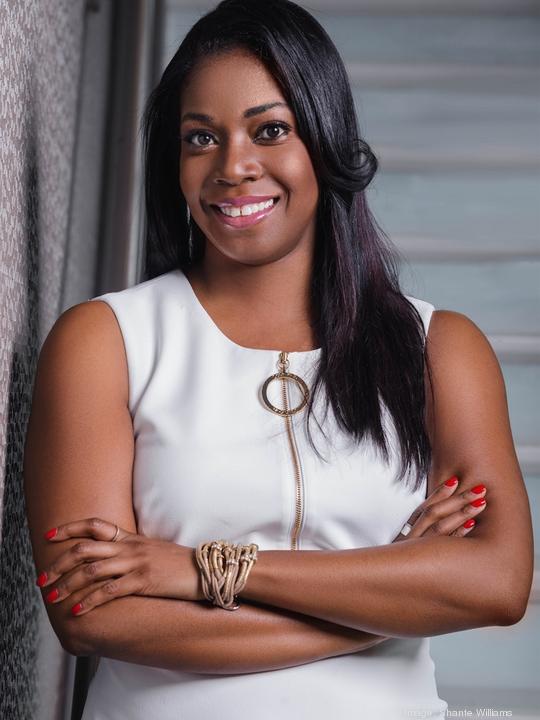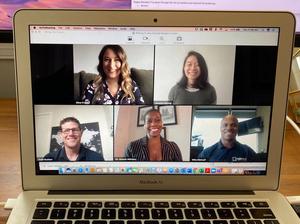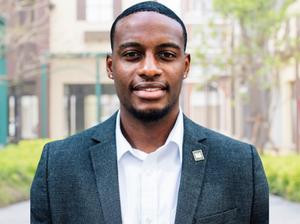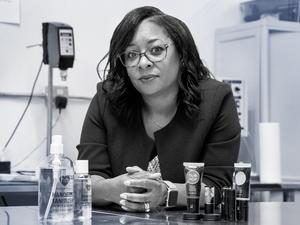The 2020 murder of George Floyd in Minneapolis brought a decades-long conversation about race back into the forefront for millions of people. As a result, governments, businesses and communities have been challenged to rethink the role diversity and equity play within their organizations.
Over the last several weeks, Charlotte Inno spoke to and revisited conversations with several of the city's leaders in tech and innovation to learn where they believe progress has been made — and why there's still so much left to be done.
While many questions remain, Charlotte's Black tech leaders said two things are certain: First, long-term, impactful change will take continued and intentional effort; and, second, the time for talk has ended.
"There’s an impetus to want to do some things, but the speed to which we’ll see change is something that I see as being more incremental," said Henry Rock, founder and executive director of City Startup Labs. The organization was created in 2014 as a way for Rock to share valuable education tools and resources with Black millennial founders. "I think that once the intensity of the moment we were in dissipated, then so, too, did the sense of urgency to address these issues," he said.
Less talk, more action
Dr. Shante Williams, an entrepreneur, author and CEO of Black Pearl Global Investments, said it's long past time for those who want to keep conversations going to put actions behind their words. Black Pearl, founded by Williams in 2019, is a Charlotte-based venture capital firm that focuses on health-tech startups.
"I see a lot of people talking about Black entrepreneurship or economic development, and I think a lot of it hasn’t materialized into something that will create actual inclusivity, or it hasn’t really yielded more dollars, writ large, for Black businesses, entrepreneurs or startups," she said. "We’re still in the middle of conversations, and conversations don’t build businesses in the end."
Williams said a clear shift in the recognition of who minority founders are and what they are capable of must happen.
"Recognize that we don’t have a lack of talent or pipeline or ingenuity in Black startups or Black founders," she said. "I think a lot of folks come into those companies thinking, ‘They need my help’ or ‘They don’t have the wherewithal to do X, Y or Z,’ and essentially that says these founders are at a deficit compared to their peers, which isn’t true."

Rashaan Peek, director of BLKTECHCLT-Interactive, said while more authentic conversations surrounding equity in tech have happened over the last year, it's not enough. BLKTECHCLT was acquired by City Startup Labs in March. Peek described the organization as being "advocates and noisemakers to try to give voice to an already introverted tech community."
"The fear of being a Black person in this space is more noticed, but I think we're behind, so I'm not glorifying the dialogue," she said. "We've been trying to say this for a long time, and it took a national incident for the rest of the community to listen."
Peek said those in positions of power often appear unbothered by the inequities and lack of diversity within their own corporations. Often, she said, diversity within larger companies is simply a box to check.
"They'll throw some money at whatever the popular topic is at the time and move on," she said. "Change won't happen without those people in power being really intentional about empowering Black tech companies and entrepreneurs and giving them opportunities because of their talent."
As someone with years of experience in the investment space, Williams said the time has come to focus less on creating access to capital and more on deploying the capital that already exists.
"We talk ad nauseam about access to capital, but access and deployment are two different things," she said. "We see funds getting started; we see initiatives getting launched, and it creates an access pool, but the funds aren’t deployed to those who have been doing the work or are already in the space."
Another important part of creating more equity among minority founders is for those in positions of power to understand that they may not always be the best person to "lead the charge" for change.
"You probably have some experience, some connections, social capital that could lend itself to the startup ecosystem, but you can be better served as an ally by putting forward that Black or Brown founder’s name and putting them at the table instead of wanting to have a seat as their representative," Williams said.
These founders need and deserve the same opportunities as their white counterparts to grow their operations, she said.
"You have to build relationships, but at some point, someone’s got to write you a check. It’s not about programming. It’s not about bootcamps or seminars or virtual conferences; it’s about writing the check," she said. "A lot of power shifting needs to happen for Charlotte to really fulfill its ambitions to be more inclusive, especially in the startup community."
Tangible progress
Though progress has been slow, there is evidence that the tides may be turning. Charlotte's Black-led startups are gaining momentum.
Last month, local startup BatteryXchange, co-founded by Desmond Wiggan and Aubrey Yeboah, announced an investment from local venture capital firm Defiance Ventures. Though the funding amount is still undisclosed, it was the first investment in the startup's open seed round.
BatteryXchange, along with STEM-focused startup Smart Girls HQ, was among the recipients of NC IDEA's $50,000 seed grants, which were announced last month. Smart Girls HQ, founded by Abi Olukeye, also received the organization's $10,000 microgrant last fall.
When the awards were announced, Wiggan said it meant a great deal that the only two Charlotte startups chosen for the grant cycle are minority-led.
And while Charlotte is known for its fintech scene, the finance and banking industries here historically have been devoid of diversity. That's something Dan Roselli, co-founder of RevTech Labs and Carolina Fintech Ventures, said his organizations have tried to be intentional about changing.

RevTech Labs is a household name in Charlotte's fintech ecosystem. Since its inception in 2012, Roselli said, 51% of startups to complete the early-stage accelerator program have been either minority-led or female-led.
"Looking at the fact that we want to be a positive influence, it was a natural and logical thing to do. We didn’t question it; we just did it," he said. "Traditionally underrepresented founders are overlooked, and that’s a lot of really good founders with good ideas. We think there are fantastic deals to be had with those founders, and that’s proven to be true over time."
RevTech isn't the only Charlotte organization making public efforts to support and invest in Black founders. Last year, the Charlotte Hornets Foundation launched a social justice platform that focuses on economic mobility within the city. A few months later, in January, the foundation announced it would hold an inaugural Innovation Summit aimed at providing Black and Brown founders with social and financial capital.
"A part of our Innovation Summit was working with minority-owned entrepreneurs," said Betsy Mack, CHF senior director of corporate social responsibility. "Through Covid and the social injustices that have been brought to light, we saw that our minority entrepreneurs and minority-owned businesses were hurt at a greater rate."
The Innovation Summit winner was announced in April. Brandi Long, a South Carolina chemist who designed a line of handbags that transform into a jacket, won the pitch competition and received a $15,000 investment from the foundation. Each of the 20 participating entrepreneurs, chosen from a pool of 150 applications, received access to a variety of non-monetary resources.
"When we look at the community, we want to make sure we’re supporting different groups … and looking with an equitable lens," Mack said. "This past year, our minority entrepreneurs were much greater, so we want to continue being there for these individuals, so they have resources, so they have support, so they don’t disappear but instead thrive."
Mack said she can't speak to what other businesses and organizations in the city are doing, but she's proud of the progress the Charlotte Hornets Foundation has made to ensure equity and diversity remains constant.
"I’m proud of what we’re doing internally to help encourage our staff and represent what we’re doing internally, externally," she said. "And externally, I’m really proud of how we’re pushing the needle and challenging the community and ourselves to be a leader in this space."
What will it take?
Rock said despite these small steps, it is possible that those in power in Charlotte just aren't ready to do the work.
"Perhaps we’re not as progressive a city as we think we are," he said. "I don’t know whether or not we have enough energy around this topic. There are only a few voices who are pushing this as a point of interest."
One of the biggest issues Rock said minority founders face is they are often overlooked as being in a position to drive innovation.
"There’s a discounting of the value and viability that we bring … There’s always this conversation around, 'Well we just can’t find the [minority] talent,'" he said. "By and large, when we look at the kinds of high-tech, high-growth ventures out here, rarely are you going to see a Black or Brown face behind that."
Coupled with that, Rock said, is the lack of access to capital.
"There are extraordinary Black innovators and Black tech folks who have ventures they’ve been toiling away at," he said. "Being able to get in front of VCs or angel investors in a difficult row to hoe."
Roselli said he believes much of the problem regarding lack of diversity in the tech industry, especially fintech, and lack of equity when it comes to funding stems from "the racism of indifference."
"Rich, old white men hire people who remind them of themselves," he said. "It may not be intentional, but the impact is clear, and that is a racist and misogynistic impact."
He does think, however, that progress can be seen — if you know where to look.
"The investing community now feels completely different than it did 11 years ago when we started," he said. "You see some things now that you didn’t see before like VCs from people of color, and the generational wealth effect is starting to take hold. I think even the industry, as a whole, is waking up."
Rock agreed and said he has seen some incremental movement toward a change in access to funding for the city's minority founders. Part of that change, he said, will be recognition by founders who have had success that they're paving the way for future entrepreneurs.
"It’s incumbent upon those of us who are pursing this work and have been successful to also be mindful that their coattails need to be long, and they need to make an effort to bring folks along with them, as opposed to leaving folks to rest on their laurels," he said.
Black founders have to continue pushing forward, despite the barriers to success.
"It's been a systemic and very structured way of dealing with us, as a people," he said. "There’s a long, rich tradition, in spite of that, where folks have been able to do some extraordinary things."
"At some point or another, those barriers will dissipate," Rock added. "It’s going to take some resolve."







